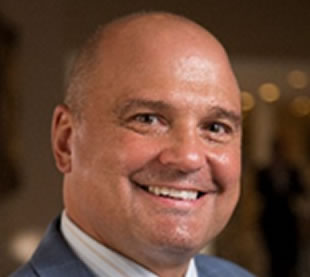
April Is Financial Literacy Month – Why Financial Wellness Matters
 April is Financial Literacy Month and a great time to focus on financial education. A lack of financial preparedness has huge societal costs, and in the coming years as Americans age, these costs will likely increase. There are daunting challenges facing not only the poor but also the working middle class. In the face of flat real wages, structural unemployment, a high tax burden, and higher health-care costs, it is becoming more difficult for millions of Americans to find extra income to save at the end of the month. In addition, many don’t understand the enormous commitment a self-financed retirement entails.
April is Financial Literacy Month and a great time to focus on financial education. A lack of financial preparedness has huge societal costs, and in the coming years as Americans age, these costs will likely increase. There are daunting challenges facing not only the poor but also the working middle class. In the face of flat real wages, structural unemployment, a high tax burden, and higher health-care costs, it is becoming more difficult for millions of Americans to find extra income to save at the end of the month. In addition, many don’t understand the enormous commitment a self-financed retirement entails.
This is a complex problem. According to a recent survey, over 50% of Americans have less than $1,000 in savings. To combat this, our country needs a combination of things that will alert citizens to the financial reality they are facing. To start, workers need skill sets that keep pace with a rapidly changing world and wages that at least track inflation and rise with productivity gains. Workers need to be educated on the importance of regular savings especially with the rapid decline of pensions.
There also needs to be a deeper understanding that everyone is responsible for their own financial freedom and how challenging that is to attain. To accomplish this, we need to educate on the importance of starting early. For example, young workers will need to save close to $1,000 per month to remain in the middle class; $925 per month for 30 years at 8% grows to $1.26 million, but that amount saved for 20 years only grows to about $508,000. Young people are often surprised to learn that the few hundred dollars they’re saving each month may not be enough to retire into a middle-class lifestyle.
As a nation, we need an environment where a business can thrive and where sponsoring a retirement savings plan for employees doesn’t lead to sizable amounts of paperwork, time, cost, and risk. We need a smart, pro-growth regulatory environment that protects workers and consumers, but also allows for strong economic growth so our workers earn sufficient wages. Historically, each generation of Americans has worked for a chance to achieve a better lifestyle and we need this dream to continue. People would be wise not to look to the government for middle-class financial freedom. We have seen the failure of governments that promise a workers paradise complete with middle-class wealth. This is, after all, an impossible task for any nation to finance—especially one already $21 trillion in debt. With this realization, we should arm ourselves with the knowledge and tools to begin our own journey towards financial freedom.
Financial literacy needs to permeate all communities, regardless of demographics or socioeconomic standing, especially families with young children. We need early financial education in the home, mainstream financial literacy programs starting at a young age, and government funding for a public awareness campaign much like those on public health and safety issues. It should be incorporated into school curricula, media campaigns, corporate wellness programs, and, most importantly, ongoing parental discussions.
The next step is for you to take action. Purposefully work each day with an eye towards educating yourself on how to gain your financial freedom. Start in small ways by reading some articles, using a mobile budgeting app, or signing up for a personal finance class at a community college. Then decide to live on less than you earn each month and automatically save the difference. While you may be able to save only a little, it is ok to start small and grow into a larger savings plan over time. The key is to start now!
With this month’s focus on Financial Literacy, it’s a good time to take control of your financial life. By doing so you will have more financial freedom and personal choice—two worthwhile things that money can help buy.



Engage us on Facebook
Follow us on Twitter
Tweets by @mymcmedia